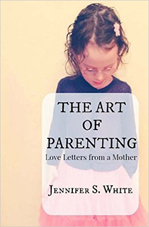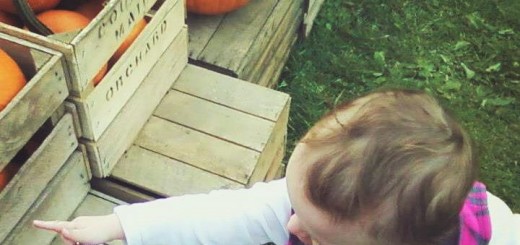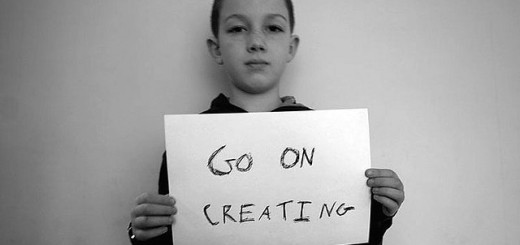How to Find Gratitude on an Ordinary Day.
The light streams towards me through the front porch windows.
The light is golden, and it highlights the yellow of the front porch’s ceiling, and the way that the white rocking chair’s back creates lined shadows, where a glare off of the window screen mutes it into a blueish patch on the wooden floor, next to me.
My fingernails click a little as I write on my laptop; as I sit down at our nicked antique dining table in the room slightly beyond this pane of glass separating me from that perfectly lit rocking chair.
It’s too cold for me to sit outside, in that white rocker. The sun would warm me, surely, but I’m tired, and I always get cold when I’m tired, and, anyways, it’s been chilly today.
I hear football playing in the next room. Our two daughters sit together on my husband’s lap. The baby is wearing jeans for the first time. (They’re hand-me-downs from her big sister.)
I can’t help but listen in, although I earnestly try not to—my ADHD hears multiple conversations, easily, and at once.
Our oldest daughter asks for “Mommy,” and he tells her softly that, “Mommy is doing her typing.” They go back to watching football—kind of, the girls don’t really care for it (yet).
The cars rush by outside of that window—a curvy, country road lies at the bottom of our hill, beneath that yellow front porch and its white rocking chair.
The other day a man followed my bumper closely as we curved this way and then that, and I slowed way down, having earlier braked for a fawn at the edge of the road, knowing that if I had to brake again that he was too close and would hit my sleeping baby in the backseat, and her singing-along-in-the-car, older sister.
As I pulled into our long, stone driveway he yelled, “You’re a terrible driver!” so violently that I could hear him inside of my silver Jetta, and in my driveway, as he sped by. It made me upset initially, but my disturbance was quickly lost to the revelation that it must be so sad to be living within his skin.
I pause my typing fingers to take a slow, smooth sip of my favorite white wine and to look once again through the window of the front porch.
Already the sun has lowered and dipped just enough to make the arms of the white rocker blue, and the yellow light is lost entirely. (I admit to peeking also at the football game in the other room, to check the score.)
My baby babbles to her big sister, sitting together as they are on Daddy’s lap.
She turns 11 months old next week.
I wonder, often, why we are all in such a hurry—like that man. I hurry too.
I rush through my showers because I think I can hear the baby crying, or I find myself thinking about the next pose that I’ll get into as I practice yoga, instead of firmly staying within the one that I’m currently inhabiting.
And I listen to those cars rushing by, and I observe the cool, crisp, quickly ripening fall air—and I realize that, for the first time ever, I’m not ready for my favorite season of autumn.
I’m not ready to leave my baby’s first year, in October.
I’m not ready, either, to—each morning—see my daughter get onto her first school bus.
I’m not ready for more smile lines, or more grey hairs.
But I am ready—it’s cliche, but true that the alternative is no better.
I pause another time and sip my wine, which I never like chilled, but it is slightly cool because of this end-of-summer air.
My oldest daughter completely distracts my next thought by coming in and saying, “Hi, Mommy. Hi, Mommmy,” and I’m grateful—because this is why I am ready to turn another year.
My own birthday is 10 days after my baby was born, last October. I’ll become 36, and I look forward to chocolate cake and, I’ll admit, to presents, and my family singing to me and to the few friends’ cards that I’ll still receive, despite becoming so reclusive after having children.
I’m reclusive because I’m possessive—I’m possessive of my time. I watch closely where it goes, because it seems that I never have enough.
And it’s not that I don’t miss phone dates, or my twin sister, or my friends: I do—I do so much! But, more, I don’t want to miss that space in between when my daughter began to crawl and then run—it happened just like that.
I want to notice, too, the smile line that appeared just here on my husband’s cheek, as well as the little girl’s repeated giggling with him that created it.
I don’t want to miss when I stopped being called Mommy, and am, instead, Mom.
I pause and this time, as my fingers briefly stall, I close my eyes.
The cars rushing are momentarily slower and my daughter’s words in the other room seem suddenly as crisp as the autumnal air outside the window, rather than muted in the background. I sip my wine and I note the tartness of its flavor.
I begin to long—slowly—for tart fall apples; for numbing fall mornings, where we stand at the edge of our stony driveway, waiting for the bus.
I envision the baby eating her first birthday cake, and the devilish grin that she’ll surely bear.
Yet I will, most assuredly, be another person rushing absently from here to there tomorrow (since it’s always our fullest day of the week), but it’s these simple inhales and exhales over girlish laughter, and football, and writing, and yellow-to-blue evening light that make me relish being human—and make me remember to feel alive.
We need to pause—if only for a few moments during an afternoon—and remember to enjoy this life—this one, fleeting life—that we usually rush through, far too easily.










